Speaker: Prof. Mikhail I. Zarayskiy (Clinical Laboratory, First Pavlov State Medical University of Saint Petersburg, Russia)
Talk: The modern concept of the DNA structure and regulation
Time: 23 October 2015, 9:00
Venue: Intercollegiate Faculty of Biotechnology, Kładki 24, lecture hall B
Category: Invited Seminar
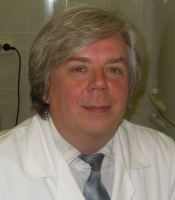 Mikhail I. Zarayskyi is professor of Clinical Laboratory at the First Pavlov State Medical University of Saint Petersburg in Russia. Hi is a group leader ‘Molecular Diagnostics in Oncology’. He graduated in medicine in 1984 at Saint-Petersburg Medical Institute of Hygiene and Sanitation. Then he obtained PhD degree for research on ‘The role of HLA markers in prognosis of multiple myeloma’ (1985) and ‘Molecular aspects of the main complications in hemopoietic stem cell transplantation’ (1995). His research interests focus primarily on molecular and genetic aspects of oncogenesis (telomerase activity, mutagenesis in the apoptotic genes (p53, p21, BCL-2), intracellular signaling (Jak, HOX, STAT), allogenic bone marrow transplantation, renal transplantation and micro-RNA control of tumor cells. He is currently a member of the European Dialysis and Transplant Association.
Mikhail I. Zarayskyi is professor of Clinical Laboratory at the First Pavlov State Medical University of Saint Petersburg in Russia. Hi is a group leader ‘Molecular Diagnostics in Oncology’. He graduated in medicine in 1984 at Saint-Petersburg Medical Institute of Hygiene and Sanitation. Then he obtained PhD degree for research on ‘The role of HLA markers in prognosis of multiple myeloma’ (1985) and ‘Molecular aspects of the main complications in hemopoietic stem cell transplantation’ (1995). His research interests focus primarily on molecular and genetic aspects of oncogenesis (telomerase activity, mutagenesis in the apoptotic genes (p53, p21, BCL-2), intracellular signaling (Jak, HOX, STAT), allogenic bone marrow transplantation, renal transplantation and micro-RNA control of tumor cells. He is currently a member of the European Dialysis and Transplant Association.
| Załącznik | Wielkość |
|---|---|
| 89.1 KB |
Speaker: Dr. Luis M. Schang (Li Ka Shing Institute of Virology, University of Alberta, Canada)
Talk: Chromatin silencing as an antiviral innate immune response
Time: Friday, 2015-10-16, 9:00
Venue: Intercollegiate Faculty of Biotechnology, Kładki 24, lecture hall B
Category: Invited Seminar
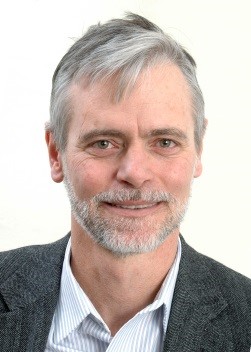
Dr. Luis M. Schang is a Professor at the Department of Biochemistry of the Faculty of Medicine and Dentistry of the University of Alberta, cross-appointed to the Department of Medical Microbiology and Immunology. He is also a founding member of the Li Ka Shing Institute of Virology and a founding member and president of ProPhysis, Ltd. He is the director of the MD with Special Training in Research (MD-STIR) program. Dr. Schang is an active member of the International Society for Antiviral Research (ISAR) and the International Herpesvirus Workshop (IHW). He is a section editor for PLOS ONE, a member of the editorial boards of two of the official publications of the American Society for Microbiology (ASM), the Journal of Virology, and Antimicrobial Agents and Chemotherapy, and an associate editor of Virology Journal. He also reviews papers for a number of high-impact scientific publications. He is a permanent or ad hoc member of grant review panels of the Canadian Institutes of Health Research (CIHR), the National Institute of Health, USA (NIH), and a number of other International granting agencies. His research interests are centered in chemical virology, the use of small chemical probes to interrogate virus-infected cells to identify factors required for viral replication and leads toward the development of new antiviral drugs. His group discovered the first lipid-targeting antiviral compounds and spearheaded the study of chromatin dynamics and epigenetics in lytic HSV infections, playing a critical role in our current understanding of the roles of chromatin as an antiviral innate cellular defense. Previously, Dr. Schang had identified the roles of the cellular cyclin-dependent kinases in viral replication and pathogenesis, and championed the use of inhibitors of cellular protein kinases against virus-induced cancers. He has been continuously funded by Canadian and American sources since 2001. Dr. Schang has published 60 original research, review or editorial articles or book chapters and holds four issued patents on novel antivirals.
| Załącznik | Wielkość |
|---|---|
| 75.34 KB |
Speaker: Paul Williams (Centre for Biomolecular Sciences, University of Nottingham, United Kingdom)
Talk: The art of antibacterial warfare – deception through interference with quorum sensing–mediated communication
Time: Friday, 3rd July 2015, 09:00
Venue: Biotechnology Summer School 2015, Kadyny Folwark Hotel&SPA
Category: Invited lectures during Biotechnology Summer School
Paul Williams is Professor of Molecular Microbiology in the School of Life Sciences, Faculty of Medicine and Health Sciences at the University of Nottingham U.K. He graduated in pharmacy in 1979 prior to undertaking a Ph.D in microbiology (1984). In 1996 he was appointed to the Directorship of the Institute of Infection, Immunity and Inflammation until 2008 when he became Head of the School of Molecular Medical Sciences, University of Nottingham. His research interests focus primarily on the regulation of gene expression in bacteria through cell-cell communication (quorum sensing) and the development of novel antibacterial agents and bacterial attachment resistant polymers. He has published around 300 research papers, reviews and book chapters and patents. For his quorum sensing research he was awarded the Royal Pharmaceutical Society of Great Britain Conference Science Medal (1992), Pfizer prize in Pharmaceutical Sciences (1994) and the Society for General Microbiology Colworth Prize Lecture in 2007. Prof. Williams has served on the editorial/advisory boards of Environmental Microbiology, Journal of Bacteriology Microbiology, FEMS Microbiology Letters, Biofilms, International Journal of Medical Microbiology and Molecular Microbiology. He has also been a member of the Biotechnology and Biological Sciences Research Council U.K. (Plants and Microbes Committee), the Medical Research Council (MRC) U.K. Advisory Board, the MRC College of Experts, the Infection Group of the Society for General Microbiology and was a specialist advisor for the UK RAE2008 research selectivity exercise. He is currently a member of the MRC Infection and Immunity board, a member of the EU Joint Programming Initiative in Antimicrobial Resistance and is a Welcome Trust Senior Investigator.
Speaker: Pierre Savatier (INSERM U846 Stem Cell and Brain Research Institute, France)
Talk: Understanding and manipulating pluripotent stem cells: toward applications in basic biology, biotechnology and medicine
Time: Friday, 25th November 2016, 09:00 – 10:00
Venue: Faculty Seminar
Time: Thursday, 2nd July 2015, 09:00 – 10:00
Venue: Biotechnology Summer School 2015, Kadyny Folwark Hotel&SPA
Category: Invited lectures during Biotechnology Summer School
 Dr. Pierre Savatier obtained his PhD in biology at the University of Lyon, France, working on genome evolution in primates. He was a postdoctoral fellow at Oxford University in the late 80’s, working on mouse early embryo development and pluripotent stem cells. Then he joined the Ecole Normale Supérieure in Lyon to start his own team, working on cell cycle regulation both in mouse embryonic stem cells and neural precursors of the developing cortex. In 2004, he joined the National Institute for Health and Medical Research (INSERM) in Lyon, and participated in the creation of the Stem Cell and Brain Research Institute (www.sbri.fr), where he now heads the team “Pluripotent stem cells in mammals”. His current research interests include the regulation of pluripotency in the early embryo of rabbits, macaque monkey and human, and the generation of somatic and germline chimeras in rabbits and non-human primates with engineered embryonic and induced pluripotent stem cells. Pierre Savatier is a member of DEVweCAN, a cluster of Excellence dedicated to development and cancer research, and CORTEX a cluster of Excellence dedicated to the study of brain development and repair.
Dr. Pierre Savatier obtained his PhD in biology at the University of Lyon, France, working on genome evolution in primates. He was a postdoctoral fellow at Oxford University in the late 80’s, working on mouse early embryo development and pluripotent stem cells. Then he joined the Ecole Normale Supérieure in Lyon to start his own team, working on cell cycle regulation both in mouse embryonic stem cells and neural precursors of the developing cortex. In 2004, he joined the National Institute for Health and Medical Research (INSERM) in Lyon, and participated in the creation of the Stem Cell and Brain Research Institute (www.sbri.fr), where he now heads the team “Pluripotent stem cells in mammals”. His current research interests include the regulation of pluripotency in the early embryo of rabbits, macaque monkey and human, and the generation of somatic and germline chimeras in rabbits and non-human primates with engineered embryonic and induced pluripotent stem cells. Pierre Savatier is a member of DEVweCAN, a cluster of Excellence dedicated to development and cancer research, and CORTEX a cluster of Excellence dedicated to the study of brain development and repair.
Speaker: Ezio Ricca (University of Cambridge, United Kingdom)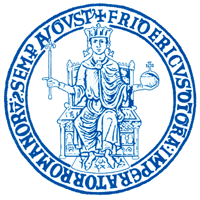
Talk: Microbiology and Biotechnological Applications of Spore Formers
Time: Friday, 3rd July 2015, 10:00
Venue: Biotechnology Summer School 2015, Kadyny Folwark Hotel&SPA
Category: Invited lectures during Biotechnology Summer School
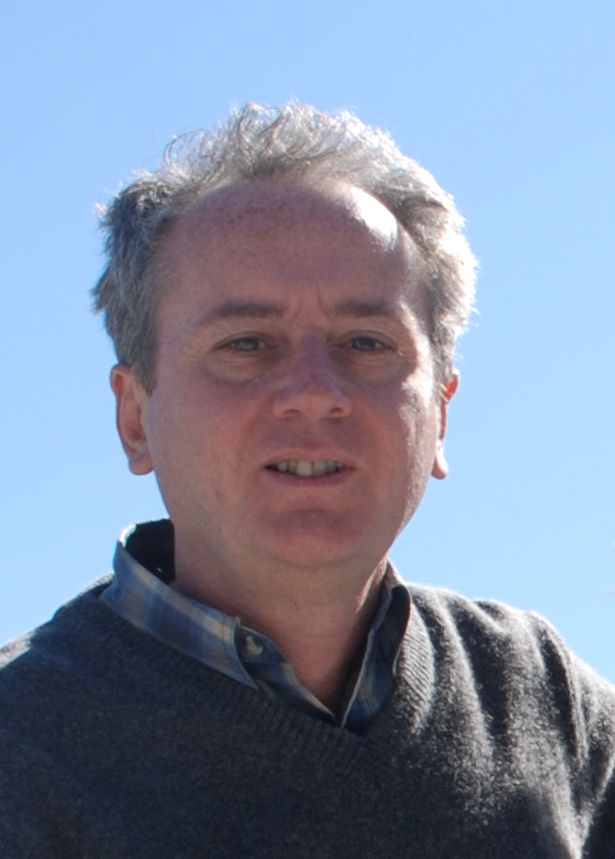 Ezio Ricca is a professor of Microbiology of the Federico II University of Naples (Italy). As a student of the University of Naples, he worked for his Thesis at the International Institute of Genetic and Biophysics (IIGB) of Naples under the supervision of Prof. M. De Felice on the molecular characterization of Escherichia coli mutants altered in the biosynthesis of branched-chains amino acids. After that Ezio spent more than two years as a post-doctoral fellow in the laboratory of Prof. J.M. Calvo at the Department of Biochemistry and Cell Biology of the Cornell University, Ithaca, NY (US). At Cornell Ezio worked on the transcriptional regulation of the ilvIH operon of Escherichia coli and Salmonella typhimurium identifying and characterizing Lrp, a global regulator of metabolism in enterobacteria. From 1990 Ezio became interested in gram-positive spore forming bacteria and spent two years in the laboratory of Prof. R. Losick at the Department of Cellular and Developmental Biology of the Harvard University, Cambridge, MA (US). At Harvard Ezio worked on the activation of sigmaK, a sporulation-specific sigma factor of the RNA polymerase, on the characterization of the sporulation gene spoVM and on the identification of CotG, an abundant component of the spore surface. Since Ezio return to Italy at the Federico II University of Naples, his research interests have been focused on the study of the bacterial spore surface and on the use of spores as a biotechnological tool. In particular, Ezio developed the use of the spore as a mucosal delivery system and as a probiotic agent. More recently, Ezio became also interested in the study of the interactions between commensal bacteria and intestinal cells and in the effects of bacteria and bacterial molecules on the composition of the gut microbiota. Since 2003 Ezio Ricca is in the Editorial board of FEMS Microbiol Lett, and is in the Organizing Committee of the “European Spores Conference” (Bratislava, Slovakia, 2004 and 2006; Napoli, Italy, 2008; Cortona, Italy, 2010; Egham, UK, 2012 and 2014).
Ezio Ricca is a professor of Microbiology of the Federico II University of Naples (Italy). As a student of the University of Naples, he worked for his Thesis at the International Institute of Genetic and Biophysics (IIGB) of Naples under the supervision of Prof. M. De Felice on the molecular characterization of Escherichia coli mutants altered in the biosynthesis of branched-chains amino acids. After that Ezio spent more than two years as a post-doctoral fellow in the laboratory of Prof. J.M. Calvo at the Department of Biochemistry and Cell Biology of the Cornell University, Ithaca, NY (US). At Cornell Ezio worked on the transcriptional regulation of the ilvIH operon of Escherichia coli and Salmonella typhimurium identifying and characterizing Lrp, a global regulator of metabolism in enterobacteria. From 1990 Ezio became interested in gram-positive spore forming bacteria and spent two years in the laboratory of Prof. R. Losick at the Department of Cellular and Developmental Biology of the Harvard University, Cambridge, MA (US). At Harvard Ezio worked on the activation of sigmaK, a sporulation-specific sigma factor of the RNA polymerase, on the characterization of the sporulation gene spoVM and on the identification of CotG, an abundant component of the spore surface. Since Ezio return to Italy at the Federico II University of Naples, his research interests have been focused on the study of the bacterial spore surface and on the use of spores as a biotechnological tool. In particular, Ezio developed the use of the spore as a mucosal delivery system and as a probiotic agent. More recently, Ezio became also interested in the study of the interactions between commensal bacteria and intestinal cells and in the effects of bacteria and bacterial molecules on the composition of the gut microbiota. Since 2003 Ezio Ricca is in the Editorial board of FEMS Microbiol Lett, and is in the Organizing Committee of the “European Spores Conference” (Bratislava, Slovakia, 2004 and 2006; Napoli, Italy, 2008; Cortona, Italy, 2010; Egham, UK, 2012 and 2014).
Speaker: Takashi Kuwana (KAWA.SKA Sp. z o.o., Poland)
Talk: Microsurgery techniques in biology
Time: Friday, 3rd July 2015, 11:30
Venue: Biotechnology Summer School 2015, Kadyny Folwark Hotel&SPA
Category: Invited lectures during Biotechnology Summer School
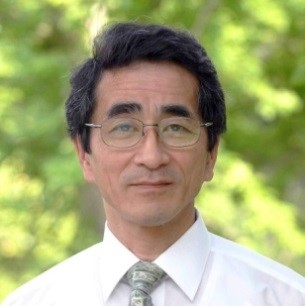 Ph.D. (1981) Graduate School of Medical Science, Kumamoto University, Japan
Ph.D. (1981) Graduate School of Medical Science, Kumamoto University, Japan
1981 to 1987 Assistant Lecturer, Dept. of Anatomy, Kumamoto University Medical School, Japan
1987 to 1991 Lecturer, Dept. of Anatomy, Kumamoto University Medical School
1989 to 1990 International Exchange Researcher between Japan and Poland
1991 to 2003 Head, Pathology Section, National Institute for Minamata Disease, Japan
1998 to 2004 Professor, Faculty of Life Science, Kumamoto Univ., Japan
2003 to 2009 Chief, Biological Resource Laboratory, Laboratory for Intellectual Fundamentals for Environmental Studies (LIFES), National Institute for Environmental Studies (NIES), Japan
2009 to 2011 Director, LIFES, NIES, Japan
2011 to 2014 General Director, International Institute of Avian Conservation Science, Management of Nature Conservation, Department of the President’s Affairs, United Arab Emirates
2011 to present Professor, Institute of Advanced Technology, Kinki University, Japan
2015 to present Scientific Consultant, KAWA.SKA Sp. z o.o., Poland
Speaker: Jarosław Korczyński (KAWA.SKA Sp. z o.o., Poland)
Talk: To see invisible. Imaging techniques in fluorescence microscopy
Time: Friday, 3rd July 2015, 13:15
Venue: Biotechnology Summer School 2015, Kadyny Folwark Hotel&SPA
Category: Invited lectures during Biotechnology Summer School
 Since childhood I was interested in biology and generally nature. I followed my interests during my education process and finally graduated biology with honors at Jagiellonian University in Cracow, Poland. There, for the first time, I have become acquainted with the fascinating world of microscopy experiments. Continuing my fascination with biology I began PhD studies at the Nencki Institute of Experimental Biology in Warsaw, Poland, where I investigated signaling pathways which regulate actin cytoskeleton dynamics in glioma C6 cells and astrocytes, using both biochemical and confocal microscopy techniques. There I met with a different type of fluorescent experiments like 3D visualization, FRET and FRAP techniques, STED microscopy, Calcium measurement and live cell imaging. Now, since July of this year, I’m working as an application specialist in KAWA.SKA Company – distributor of microscopy equipment in Poland.
Since childhood I was interested in biology and generally nature. I followed my interests during my education process and finally graduated biology with honors at Jagiellonian University in Cracow, Poland. There, for the first time, I have become acquainted with the fascinating world of microscopy experiments. Continuing my fascination with biology I began PhD studies at the Nencki Institute of Experimental Biology in Warsaw, Poland, where I investigated signaling pathways which regulate actin cytoskeleton dynamics in glioma C6 cells and astrocytes, using both biochemical and confocal microscopy techniques. There I met with a different type of fluorescent experiments like 3D visualization, FRET and FRAP techniques, STED microscopy, Calcium measurement and live cell imaging. Now, since July of this year, I’m working as an application specialist in KAWA.SKA Company – distributor of microscopy equipment in Poland.
Speaker: Adam Jagiełło Rusiłowski (University of Gdańsk, Poland)
Workshop: Principles of intercultural cooperation for research teams
Time: Thursday, 2nd July 2015, 11:30
Venue: Biotechnology Summer School 2015, Kadyny Folwark Hotel&SPA
Category: Invited lectures during Biotechnology Summer School
 Adam Jagiello-Rusilowski – is an educator and social entrepreneur. He holds MA in English Literature and PhD in Educational Psychology from University of Gdansk. He studied Drama in Education at University of Northern Iowa, Community Leadership at Picker Centre, Columbia University and Social Economics at INSEAD Business School (Fontainableau). He ran 3 youth NGOs, was Ford and Ashoka’s fellow, worked as an expert for Soros Foundations in Eastern Europe, European Cultural Foundation in Amsterdam and UNWRA in Gaza Strip. His original idea of self-sustainable system of training young actors as youth workers using drama to promote social and civic competences among the socially excluded (working class) children was scaled through various programs in South Eastern Europe, Russia, Peru, Uzbekistan and Palestine (Gaza Strip).
Adam Jagiello-Rusilowski – is an educator and social entrepreneur. He holds MA in English Literature and PhD in Educational Psychology from University of Gdansk. He studied Drama in Education at University of Northern Iowa, Community Leadership at Picker Centre, Columbia University and Social Economics at INSEAD Business School (Fontainableau). He ran 3 youth NGOs, was Ford and Ashoka’s fellow, worked as an expert for Soros Foundations in Eastern Europe, European Cultural Foundation in Amsterdam and UNWRA in Gaza Strip. His original idea of self-sustainable system of training young actors as youth workers using drama to promote social and civic competences among the socially excluded (working class) children was scaled through various programs in South Eastern Europe, Russia, Peru, Uzbekistan and Palestine (Gaza Strip).
Currently he works as Dean of Development and International Programs at Faculty of Social Sciences, University of Gdansk. As a researcher he is interested in Lisbon Key Competences in Education in particular looking at activities promoting pro-social and entrepreneurial (innovation) attitudes in young Europeans and Arabs.
Speaker: Florian Hollfelder (University of Cambridge, United Kingdom)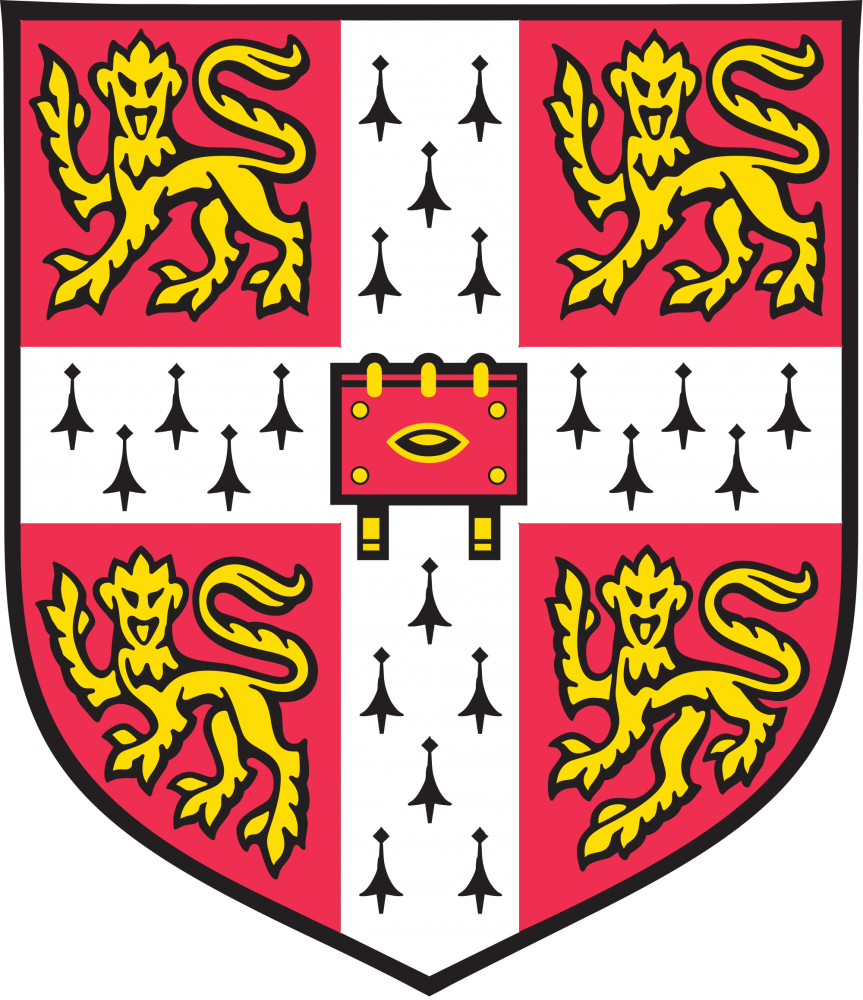
Talk: Rules and Tools for Efficient Enzyme Evolution, Recruitment and Discovery
Time: Wednesday, 1st July 2015, 09:00
Venue: Biotechnology Summer School 2015, Kadyny Folwark Hotel&SPA
Category: Invited lectures during Biotechnology Summer School
 Florian Hollfelder was educated at the Technical University of Berlin (Diplom-Chemiker) and Cambridge University (MPhil). After a formative stay at Stanford (with Dan Herschlag) on free-energy relationships in enzymes, he joined Tony Kirby’s group at the Chemistry Department of Cambridge University working on enzyme models and physical-organic chemistry. During his PhD he also collaborated with Dan Tawfik (on the mechanism and evaluation of model enzymes such as catalytic antibodies). His postdoctoral work at Harvard Medical School (with Chris T. Walsh) was concerned with the biosynthesis and action of the natural antibiotic microcin B17. In 2001 he returned to Cambridge to start his own research group in the Biochemistry Department. The group’s research centers around quantitative and mechanistic questions at the chemistry/biology interface, involving low- and high-throughput approaches. Florian is Director of Studies and Graduate Mentor at Trinity Hall. He was coordinator of several EU-funded trans-national collaborative initiatives, e.g. the EU New and Emerging Science and Technology project MiFem on biological experiments in microdroplet reactors, and Marie-Curie networks on directed evolution of functional proteins (ENDIRPRO, ENEFP), on protein-protein interactions (ProSA) and on biological phosphates (PhosChemRec).
Florian Hollfelder was educated at the Technical University of Berlin (Diplom-Chemiker) and Cambridge University (MPhil). After a formative stay at Stanford (with Dan Herschlag) on free-energy relationships in enzymes, he joined Tony Kirby’s group at the Chemistry Department of Cambridge University working on enzyme models and physical-organic chemistry. During his PhD he also collaborated with Dan Tawfik (on the mechanism and evaluation of model enzymes such as catalytic antibodies). His postdoctoral work at Harvard Medical School (with Chris T. Walsh) was concerned with the biosynthesis and action of the natural antibiotic microcin B17. In 2001 he returned to Cambridge to start his own research group in the Biochemistry Department. The group’s research centers around quantitative and mechanistic questions at the chemistry/biology interface, involving low- and high-throughput approaches. Florian is Director of Studies and Graduate Mentor at Trinity Hall. He was coordinator of several EU-funded trans-national collaborative initiatives, e.g. the EU New and Emerging Science and Technology project MiFem on biological experiments in microdroplet reactors, and Marie-Curie networks on directed evolution of functional proteins (ENDIRPRO, ENEFP), on protein-protein interactions (ProSA) and on biological phosphates (PhosChemRec).
Speaker: Rafael Giraldo (Centro de Investigaciones Biológicas – CSIC, Madrid, Spain)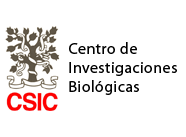
Talk: Synthetic Biology: News ways and tools to engineer biological systems
Time: Thursday, 2nd July 2015, 10:00
Venue: Biotechnology Summer School 2015, Kadyny Folwark Hotel&SPA
Category: Invited lectures during Biotechnology Summer School
 Rafael got a Ph. D. Biol. Sci. in 1991 (Complutense U., Madrid) on the genetics and biochemistry of plasmid DNA replication initiation, under the supervision of R. Díaz-Orejas (CIB-CSIC). Then, he spent a postdoctoral (1992-94) in the group of D. Rhodes at the MRC Laboratory of Molecular Biology (Cambridge, UK), where he studied the role of the yeast Rap1 protein in packing telomeric dsDNA, which led to the crystal structure of the first telomeric nucleoprotein complex. Rafael also found that Rap1 promoted the assembly of parallel DNA quadruplexes by the G-rich strand of yeast telomeres, an early example of a protein chaperoning a DNA structure. Back to CIB-CSIC, first as a postdoctoral (1995-1999) and since then as staff scientist, his main focus was on how sequence-specific DNA binding elicits conformational changes in the winged-helix (WH) domains of plasmid-encoded bacterial replication (Rep) proteins. Besides this, he studied the assembly of yeast ORC initiator. In 2007, Rafael found the way to tailor WH domains to become DNA-modulated amyloidogenic devices, having recently developed synthetic prion-like modules recapitulating essential features of mammalian amyloid proteinopathies (e.g.: toxicity, modulation by chaperones of conformational strains), albeit confined to a bio-safe bacterial host. Since 2010, he is a CSIC Research Professor and a member of Academia Europaea. In 2015, he has been elected as Vice-President of the Spanish Society for Microbiology (SEM).
Rafael got a Ph. D. Biol. Sci. in 1991 (Complutense U., Madrid) on the genetics and biochemistry of plasmid DNA replication initiation, under the supervision of R. Díaz-Orejas (CIB-CSIC). Then, he spent a postdoctoral (1992-94) in the group of D. Rhodes at the MRC Laboratory of Molecular Biology (Cambridge, UK), where he studied the role of the yeast Rap1 protein in packing telomeric dsDNA, which led to the crystal structure of the first telomeric nucleoprotein complex. Rafael also found that Rap1 promoted the assembly of parallel DNA quadruplexes by the G-rich strand of yeast telomeres, an early example of a protein chaperoning a DNA structure. Back to CIB-CSIC, first as a postdoctoral (1995-1999) and since then as staff scientist, his main focus was on how sequence-specific DNA binding elicits conformational changes in the winged-helix (WH) domains of plasmid-encoded bacterial replication (Rep) proteins. Besides this, he studied the assembly of yeast ORC initiator. In 2007, Rafael found the way to tailor WH domains to become DNA-modulated amyloidogenic devices, having recently developed synthetic prion-like modules recapitulating essential features of mammalian amyloid proteinopathies (e.g.: toxicity, modulation by chaperones of conformational strains), albeit confined to a bio-safe bacterial host. Since 2010, he is a CSIC Research Professor and a member of Academia Europaea. In 2015, he has been elected as Vice-President of the Spanish Society for Microbiology (SEM).